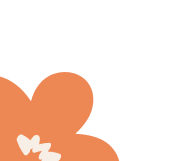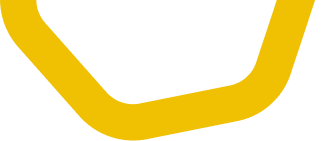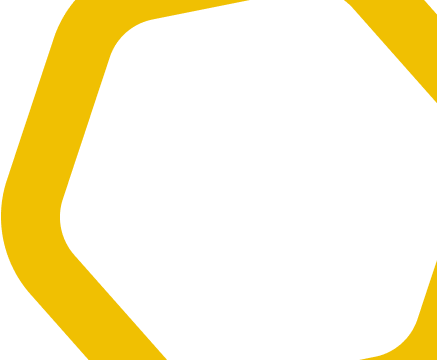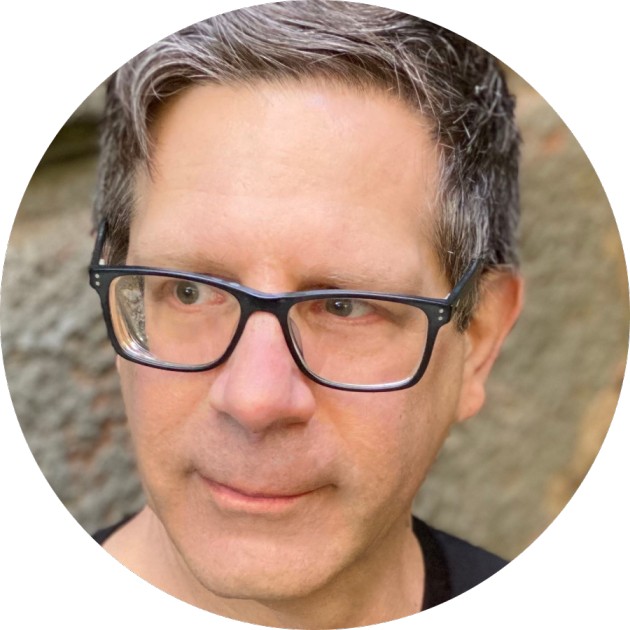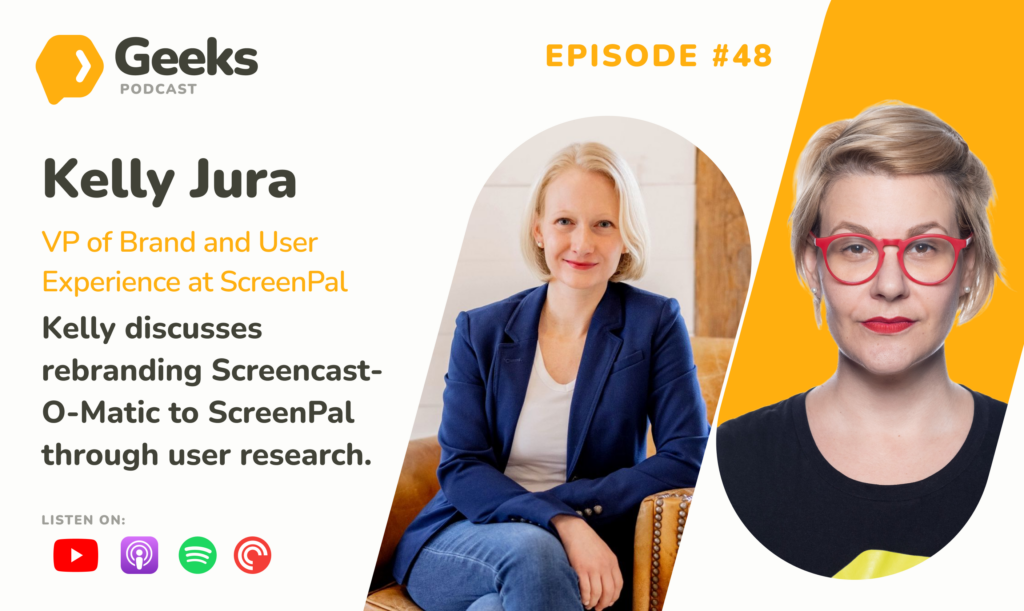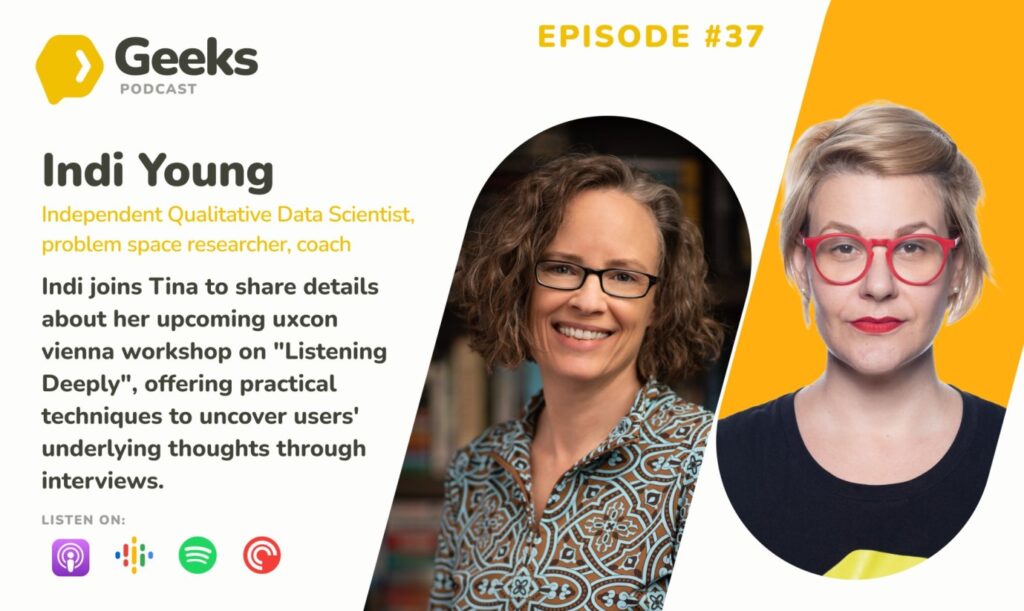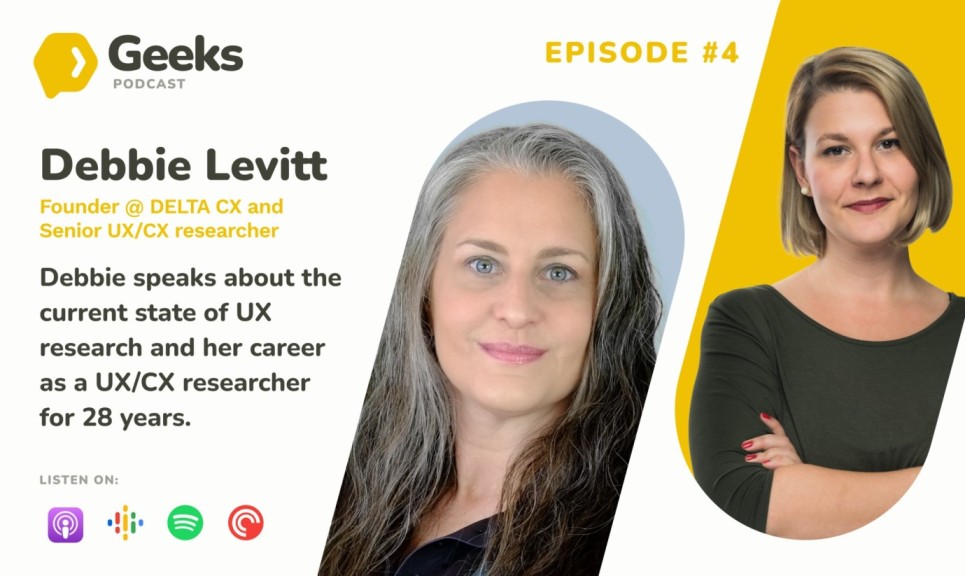Episode highlights
- 00:01:36 – First Edition’s Impact
- 00:05:53 – The Writing Process and Challenges
- 00:13:51 – Research Operations’ Role
- 00:21:50 – Mastering User Interviews
- 00:31:54 – Interviewing: Dos and Don’ts
- 00:38:39 – Connect with Steve Portigal
About our guest Steve Portigal
Steve Portigal is an experienced user researcher who helps organizations to build more mature user research practices. Based outside of San Francisco, he is principal of Portigal Consulting, and has conducted research with thoracic surgeons, families eating breakfast, rock musicians, home-automation enthusiasts, credit-default swap traders, and real estate agents. His work has informed the development of professional audio gear, wine packaging, medical information systems, design systems, video-conferencing technology, and music streaming services.
He is the author of two books: the classic Interviewing Users: How To Uncover Compelling Insights (now in a second edition) and Doorbells, Danger, and Dead Batteries: User Research War Stories. He’s also the host of the Dollars to Donuts podcast, where he interviews people who lead user research in their organizations.
Podcast transcript
[00:00:00] Tina Ličková:
Welcome to UX Research Geeks, where we geek out with researchers from all around the world on topics they are passionate about. I’m your host Tina Ličková, a researcher and a strategist, and this podcast is brought to you by UXtweak, an all-in-one UX research tool.
This is the third season and the fifth episode of UXR Geeks. Today we talked to Steve Portigal, who is one of my UXR heroes. His book, Interviewing Users, was really shaping my practice and I have to admit I was nervous talking to him. Steve turned out to be one of the kindest people that I was interviewing in my life and I think you will hear it.
His patience, his explanation and stories and his tips on the practices of interviewing. And please don’t forget to check out the second edition of Interviewing Users. The book just came out. It’s really hot. We will link to the book in the episode notes and be aware there is a discount for our listeners.
I was already telling you that you are my superstar because I think there were two books which I considered to be really groundbreaking for me. One was Steve Krug’s Don’t Let Me Think. That was basically my guideline, how to do usability testing. And when I found interviewing users, I was always buying it for my colleagues and for my clients.
So how are you and what keeps you busy now with the book?
[00:01:36] Steve Portigal: How am I? Good. I’m happy to talk to you and yeah, working on a book and then putting the book out in the world is, it’s a. I guess anything that you make and then you launch is like a special time, an exciting time, maybe a vulnerable time.
And it’s just early days for this book. And I love what you say about when you encountered the first edition of Interfering Users. And I’m excited about this book. It’s going to take a long time to understand what is the impact of an update of this book? How do people feel about it? Do they think it was needed or better, or does it attract a new audience or does it extend the longevity or the relevance of this earlier piece?
I know what I think, and I know how I feel about having it and having it be out in the world. And it’s a really exciting time for me personally, because there is a lot of enthusiasm and encouragement and, goodwill from having another book out that people had seen 10 years ago or from 10 years ago up till now.
I’m eager to see where it goes for all of us, for me and for people who read it and have a reaction, hopeful and curious at the same time.
[00:02:46] Tina Ličková: Where does the need for the second edition come from?
[00:02:50] Steve Portigal: That’s a good challenge. I think some of it is, some of it is fairly personal for me in that it was, it’s 10 years since the first edition of Interviewing Users came out.
And I started asking myself, I don’t know, like a year and a half ago, what am I going to do to mark this anniversary? Like from a self centered point of view, like it’s significant to me personally, significant to me professionally. I think I might extend that and this sounds somewhat arrogant or entitled.
I think it’s significant to our field, to our practice, but certainly starting from me that this book coming out was important to me personally. And there’s this other sort of factor that the first edition has been well received and people continue to, give me compliments or say it was significant to them.
And often those are people are enthusiastic about it in a way that connects to the past. This was a meaningful book to me when I started, or this was something impactful when I made a career transition, or I remember. Back in the past, and I think that’s very positive and I don’t want to sound unkind about it in any way.
It makes me wonder, will that continue in the future? Is the book something that people remember from their past? Like maybe a TV show or an album that they grew up with? Or is it something that is current and has resonance? And yeah, I don’t want to be part of, it’s nice to be part of the past. I don’t want to only be part of the past.
And so I want to. Continue to have something that people look to that guides them and inspires them and helps them. I had a great couple of conversations with Do Rosenfeld or Rosenfeld Media, do we want to revise this? And in fact, I will say they approached me like maybe two years ago and said, Hey, would you ever want to do a second edition?
And I dismissed that idea. I was like, no, why would I ever want to do that? So when I came back to them, I said, Hey, you remember how you had this idea? Now I think I would like to do it. And it’s a great opportunity to take a piece of something that you worked on that’s been out there and change it, fix it, update it, fix things that you knew maybe, oh, I left that out, or I don’t believe this anymore.
Just those things hang around you and oh yeah, I’m still proud of the book, it’s still good, but you start to accumulate ideas and topics that you’d want to revisit. It’s a lot of needs. And I think, and I don’t think I knew this when I started, but I, and so I’m answering a different question than you had asked, but I think our field has changed tremendously in 10 years.
And I think it’s easy to sort of feel like it hasn’t, it was easy for me. Oh, the book is still, it still says everything I’d want to say, but I think agreeing or committing to looking at it 10 years later, it forced me to acknowledge that, yeah. Things have changed. I’ve changed. The field has changed. Our practice has changed.
There’s lots of things that are different in 10 years. And that’s an opportunity to revisit that.
[00:05:53] Tina Ličková: Before I go to the changes, I am. I’m also interested in the process because I always have this image in my head, if somebody goes to a different country, runs out of the village house and starts to write and then is successful or isn’t successful, how is the writing for you and especially of something that you already wrote before?
[00:06:17] Steve Portigal: I had that romantic ideal as well, and every time, this is the third book that I’ve written, and every time I imagine, yeah, I wanna go a cabin by the seaside and shut the world out and write and not, and I’ll tell you that here’s the most unromantic version of what some of that looked like, although I do feel good about it.
We all have to get away from the internet in order to do some deep work. And there’s a number of times I took my pickup truck, if you want a very American image, I took my pickup truck and drove to basically a parking lot by the ocean, which is near where I live, and just sat with my laptop. For these two hour work sessions where there’s no, I had my phone so I could get online if I needed to, but my laptop was not online.
I could just sit there and write and just have these like focus sessions. And it was comfortable enough ergonomically to sit on my lap and type. That was not romantic. It was not getting away and spending days and days immersed in this, but it was still really nice. I only did that probably a half a dozen times.
So anyway, but your question, I think, is what was, what’s it like to go back and look at something and try to revise it if I didn’t distract from your question too much. It was great. It was great to do this. And I think I started outside the book. I just, I didn’t even open the book. I just said, okay, if I had a list, could I list three things that I would want to talk about that I know have changed without looking at any of my notes, without looking at any of my talks.
Or all the places that I capture stuff, which is all over the place without even looking at the book and I came up with four or five and then I thought about it, then the next day I added two more and the next day I added two more. And so I started coming up with, Oh, there’s all this stuff. And that was really exciting.
And then once I started officially the editor that I’d been working with sent me, they went, they got all the Word documents that we had left over from 10 years ago. And they went and did some editing on them and started flagging things, but then sent them all to me. And so I started to like from the outside, what are topics?
And then I started from the inside, like what’s in, what does the text say from this first edition? And then I did things like, this is material that I’ve been teaching in workshops and in training for 10 years, the intervening 10 years. And I went and opened that up and. That’s something that I keep changing.
I keep changing the flow. There is a narrative arc to instructional material. And how did I, what’s the flow of the workshop? It’s in a slide deck, so it’s a little different. Because I was never happy with the flow of the book. It didn’t really, as time went on, it didn’t really make sense. How do you sequence this?
And what am I talking about in my training? And what topics are there? And what examples? Because… Any material you live with, you’re always accumulating new examples, best things, new stories to tell, something that you read, something that someone else has written. And so I just started to aggregate all those things and revisit the chapters, what are the chapter titles, what are the sequence of the chapters.
And then like diving in and here’s a story, here’s an anecdote, here’s a tip, here’s a practice. Is this still true? Could I say this better? Do I even understand what I wrote 10 years ago? Does it make sense from a text point of view? And then trying to, ended up building a big list of stuff I wanted to put in and then trying to assign that location.
Where does this go? Does this go here? Does this go here? Does this sort of fit? These kinds of categories and so on. And then I think about a lot of stuff that I wanted to talk about, I am not the expert. I can’t credibly talk about this. Who has written about it that I can either point to in a footnote or maybe ask them to write a contribution so that the book has other people’s perspectives in it, not just mine.
Like that acknowledgement that I’m an expert in a lot of stuff, but there’s way, way more than I’m not. So how do I identify those people? What can I pull from them? And how do I incorporate that? And those things are all happening at once, but it’s like making a big stew or like a big meal that you’re trying to combine all these different ingredients and see what turns into, and that may sound overwhelming, but I’ll say it was really enjoyable.
It was like a really positive, creative experience for me that I feel really proud of.
[00:10:42] Tina Ličková: How long, just out of curiosity, how long did it take it to go through that?
[00:10:46] Steve Portigal: Yeah. I started a little bit over the Christmas holiday and whatever, 2022, and then really started more intentionally at the beginning of 2023.
Boy, we’re talking in November and I wish I could tell you even what date we were completely done. I think probably at the beginning of August, we were completely done. So it’s these periods that the author writes. And then it goes to somebody else to review or edit, and then they send something back. And there’s editors who kind of work for the publisher.
Then there are technical reviewers. So people in our field that, so you have to have a whole book finished for them to read the whole book and then send you pages and pages of questions and comments and so on. And so that process takes a while. Calendar wise, it takes a long time, but there are periods of intense work.
And then there are periods where you’re waiting for someone to give you feedback and then you are intensely revising and then you’re waiting and it becomes more and more refined. But because it’s a second edition already in the book, so I wasn’t starting from scratch. I knew I could iterate as opposed to creating from the ground up.
And then still we’re talking like. Yeah, about nine months, nine, ten months from starting to having a physical book out in the world.
[00:12:12] Tina Ličková: Revising something and iterating on something and we know it from our business, it’s sometimes harder to create a new thing. And I’m just, I’m surprised that it’s, I think it’s fast.
[00:12:24] Steve Portigal: It’s faster than the two books that I wrote previously from scratch. Yeah, I don’t know. Revising felt easy to me and I have. Fantasies of writing another book from scratch. And I still feel very intimidated by that idea. Like how will I figure out what it’s about and what it contains and what the structure is, all that.
I think that’s a, and I think some people are good at that. I’ve seen people write their books. From the outline before they’ve written a sentence, they write the whole outline and you can see the whole thing there. And I think other people have to write and make a big mess to see what the structure is going to be.
So I really admire someone that can create a piece just from the high level and then just have to fill in the details. I can’t really do that. I don’t know. It’s we’re all different as we go about these big, messy, creative projects. And it is a creative project, right? Even though this is. Knowledge and organization information.
You’re still trying to figure out something and how you want to bring it into the world. Yeah. I haven’t got to talk about the process very much. I’m glad you’re asking about it. Cause it’s, I’ve been living with it for almost a year.
[00:13:36] Tina Ličková: It gives me a little bit more understanding on, and this is where I’m now bridging over to the changes. You said business changed in the last 10 years. So what are the changes that you actually made in the book, which may be the most important?
[00:13:51] Steve Portigal: Yeah, thing that I didn’t talk about 10 years ago was cognitive biases that, and I wasn’t even sure 10 years ago how to talk about it.
So maybe I’d say, I don’t know why I left it out, but it soon became obvious to like other people had written about it and really. I’m like, this is a flavor of, it’s a, it’s part of what makes us human, and there’s a very human aspect of research. So how do we think about it? What are some of these biases?
With COVID and lockdown and remote work, remote research became, we did everything, every kind of knowledge work and sort of communication work was remote. And that’s not new to user research. In fact, Nate Bolt wrote a book about remote user research in 2010. So before, even before I wrote Interviewing Users, the first edition, but it was an option and for the last few years it’s become the default.
I hope it doesn’t remain the default forever and that we consider mixed approaches, but we, the technology has changed, but also the processes have changed and just thinking about. This idea of something like Zoom fatigue is a new idea, relatively speaking, in the world. And so just the ways that people are practicing doing remote, I wanted to talk about that and give people, not that the technology is always going to change, but I think there are some fundamental ways that we connect with people.
And there are workarounds and there are adaptations that I think we’ve learned through just remote meetings and remote work, as well as remote research. And then one other that I’ll mention right now is the idea of research operations is something that maybe we did it, but we didn’t have that label 10 years ago.
It’s now a profession. The idea that not only do you need to, not only do you need to do logistics to do research, which I’ve always talked about, and I think I can, I’ve talked about much more clearly. But that there is a discipline that’s devoted to supporting the organization to be ready to do research.
It’s not a support organi it’s not supporting research projects, it’s supporting the organization. And I didn’t even understand that as clearly at the outset. And so I wanted to acknowledge that and for people to understand that. Hey, there’s, it’s actually even some tactical things. I think I was a little subjective about things like releases and so on.
We didn’t have as much, 10 years ago, we didn’t have as many regulations that required companies to comply with certain practices or risk large fines, right? That’s defined a lot of how lots and lots of work has happened. And so to just make people aware that, yeah, there are processes, there are practices, there are people that can help with that, you need to probably work with your legal department as opposed to work around your legal departments for these kind of, it’s good corporate practice now.
Yeah. I could say more, but let me hand it back to you.
[00:16:43] Tina Ličková: You can say more, definitely. Because the research ops, the cognitive biases I get and the research ops is interesting because it’s also what we talked about in the beginning out of. The recording about the democratization and the research group is definitely contributing.
To democratization, I probably heard somewhere and correct me if I’m wrong that you, especially with the authors that you invited to contribute to the book, you are looking into the research apps and the democratizations as well. So why is it in the book about interviewing?
[00:17:17] Steve Portigal: It’s this question that I think we collectively examine all the time.
Who does research? And so for writing a book, who are you writing to? Who’s going to read this? And so one thing that’s changed that I think I will come back to your question. One thing that’s changed is like, where do researchers live? Because you and I are people that work for companies on the outside.
We work for ourselves and we freelance or consult. And I think it’s probably different where you live than where I live, but overall we’re in the minority. And if you go back 10 years ago, the proportion is different. I don’t know exactly what point, but right, there was a time when there weren’t large or any kind of in house research teams at so many kinds of organizations.
So they have research leaders, they have infrastructure like research ops to s to support and build the organization. They have different levels of researchers. Way back if you wanted to do research you had to hire a freelancer, a consultancy, an agency, and that has really changed, right?
There’s far fewer agencies than they were, there’s smaller ones, they’ve been bought by companies to build and fold it into their internal practices, ideally, or then we know it doesn’t always work out that way. So who does research has changed from outside to inside. And then I think as part of that, you see these, and I like the way that Kate Towsey, research ops thought leader and author and so on, practitioner.
She talks about researchers and PWDR, people who do research. And I like that label because it doesn’t, it just acknowledges that research is going to be happening at different levels with different sophistication. And I think, so for me thinking about who’s going to read this book, it’s, I think about who have I been talking to and who have I been working with and training for 10 years, and it’s lots of people that don’t have the title researcher, that don’t have the aspiration to be a researcher to do other things, but need to be better at interviewing users.
So I have a little more clarity about the different types of authors. I think the book still, I think I’m still speaking to a proper research practice where that’s the label and you’re trying to influence the rest of the organization and you’re going to invest in top of the new synthesis. Like it, it’s what you and I would call research.
But I’m also trying to speak to people that are doing some proportion of this and that I think I can tell them one thing and they can be better at that. The democratization is, it’s a systemic question, right? It’s, and I think maybe I’m sidestepping it overall and definitely sidestepping it in this conversation.
I think the democratization says, Hey, more people are going to be doing research. And so what do we want to do about that? How do we support them? I think this book to go back to that. One of the things that we have to do or research ops has to do or leaders have to do is level up people’s skills is make sure people are able to do the work that they’re taking on.
And so you have questions about what does that look like? What do researchers do versus what do, people who do research do? I don’t know if I have a position on that. I like to see, it seems like it’s an unfolding conversation. I guess I’m playing in the, how do I help both of those types of folks?
Get better at all the different things that they’re going to do. So if I think this book is above the level of a person who does research, it talks about as much as I can, the best and right and optimal way to do things. And I don’t know, I’m hopeful that if your mindset is, Oh, I just want to ask people what they like quickly, and then just put that in the product.
I want to gently blow their minds and show them that. There’s more, there’s better, there’s more effective and that there’s a path for them to get there. I don’t think if you’re a person who does research working on all, working all alone in some organization, I don’t think you’re going to read this book and roll it all out.
There’s a lot to get better at, but I think you can pick a few things. Technique, collaboration stuff, how you influence the organization, just the idea that synthesis and analysis exists, I think is, opens a door for somebody That doesn’t know that’s a thing that they should do, or let alone how to do it.
Just opening those little doors, I’m hopeful that some inspiration or some opportunity for people to… to evolve and how they’re going about it.
[00:21:50] Tina Ličková: I’m always thinking about people that I worked with and it’s either the thing of I’m telling them, no, we are not going to ask the users what they like because these are the reason why not, the people are sometimes struggling, but what are we going to ask instead?
And then it starts and interviewing users, that’s the reason why I’m buying the book, for example, for my colleague, and I hope she’s not going to listen to this because I’m going to get it as a Christmas present for her. Surprise! And then there is the thing when they are joining interviews and some of them I’m doing a great job even in remote setups to pick up on the nonverbal clues or the mimicking on the Zoom call.
And they’re like, how did you get trained to this? I’m like, yeah, I’m doing it for the last 10 years. But this is what the people are a little bit after. And then they start to understand it’s just not asking one question and the person will completely tell them everything.
When we are mentioning the other people and you said you were training a lot and you were trying to bring some kind of messages through the book, what is, what didn’t change in this last 10 years about interviewing users?
[00:23:10] Steve Portigal: It’s a messy human activity. It’s something that you can plan for, but it’s something that, it’s something that you can prepare for, but will always, especially if done well, will always be surprising and unexpected and force you, I think in a good way to be improvisational, to be responsive to, so that I think that might be a negative to some people that might be scary, but I think it’s, for me, it’s very joyful and creative and challenging. It’s always challenging. And I think that’s where we get all the great value out of research. It’s not, what do you want? Thank you. I’ve got it. It is meeting somebody where they are and trying to figure out how are you going to be with them?
How are you going to connect with them? How are you going to listen with them to them for in this interaction. And we have to manage ourselves in our own. Our own distracted monkey brains and our own anxieties and our own, the energy it takes to be present with somebody else like that’s, these are like, personal challenges, they’re about our own. It’s different for you than it is different for me. It’s different from anybody listening to this, it’s very individual. And we may recognize each other’s stories about where this is hard, or where it’s easy, or where it’s joyful. That’s very high level, very, you can tell I live in California, it sounds very California y, but.
It is these things about listening and asking questions and following up. And they’re very, there’s a, there is a practical set of skills. Like you said, you do it for 10 years as you build these skills. There is some practical stuff that we do in order to reach these sort of, these kind of higher level states of having these connections with people.
I don’t think that’s changed that, will that ever change? It’s, we’re using words with other people as I’m sure whenever Neanderthals develop speech, if they develop speech, I’m out of my. Topic area here. But once that happened in our evolution, these interaction, conversation, people connecting has been there.
So I think it’s really rooted. So while the context around us change and the business changes, we’re still doing this thing of. Interacting with people, trying to understand their world and what’s important to them through questions and through stories that we have to make sense of and try to apply to some business challenge.
That’s the work and that, that’s what was, that was the work 10 years ago and that was the work 20 years ago and I think that’s what it’s going to be 20 years from now going forward. That’s my bold declaration that I can’t back up with data, but I’m going to claim it anyway.
[00:25:52] Tina Ličková: What do you think is the essence or the principle of connecting to people through interviews or while interviewing?
[00:26:02] Steve Portigal: Are you asking about the why to do it, the how to do it?
[00:26:07] Tina Ličková: I’m getting why you’re asking back. I’m asking about sometimes you have people who you can’t really connect to. And sometimes you are in the mood of, I want to just get, we are all humans, as you said, sometimes you just get the answers to the questions that you have and that are tied to the business needs and that you want to deliver.
But I see, and that’s why I’m responding to it because I see there is a huge difference in the interviews where I have a certain connection where I don’t. With the UP. So what would be the essence that you would say it has to be there or principle that you would advise anybody on to?
[00:26:47] Steve Portigal: If I’d say one word, it’s patience, and so writing interviews take time, and the dynamic and the energy and the rapport evolves.
I think we talk a lot about how the participant You start off the interview, you don’t get, you get these sort of short, uncomfortable answers and the more you talk with them and the more you listen to them and the more you ask follow up questions and use all your good technique, the more that person starts to feel more comfortable and starts to trust you and starts to share stuff.
But that also applies to us. I really like your question because it is about when we’re not enjoying it or we don’t feel like it’s meaningful to us. And I think. Not always, but I think we start off interviews and don’t feel like this is not, this is going to be work for the next 60 minutes. But I, so when I say patience, I think you can have that feeling at the beginning, even I don’t like this person.
I think that’s a human thing to, and feeling like you don’t like them and thinking like you don’t like them are two different things. So you can have all the feelings and thoughts in your head. That’s what you should do. But you also control how you treat other people. We’re professional and kind and compassionate.
We listen because that’s what a good person does. Whether we like them or not and want to be their friend. That’s not actually why we’re meeting with them. We’re meeting with them in a professional situation. But we may find that our feeling about the interview. Changes through the course of the interview, or later that night when we’re thinking about it or the next day, or when we’re talking about what we learned, we may feel like, oh, I didn’t enjoy that hour.
I didn’t feel delight in that hour, but wow, did we learn some interesting things and wow, does that challenge my beliefs and boy, we’re really going to leverage that. And I think. That is satisfying. And so when you have that experience, I think maybe it can make you more patient in the moment. Yeah, this isn’t going to be fun.
It might be hard work. I might not like them. I might feel like they don’t like me, but I have an example in the book about somebody that was like, they’re rude to me. They were like, they were arrogant and dismissive and they were very accomplished. They let me know they were very accomplished. And we left the interviewers in person.
I was with my colleague who worked for the company and she was concerned about me. She almost apologized. Are you okay? That was really, and it was awesome. It was one of the, it was a great interview. That guy that was so rude to me was so much himself. And he was so clear about what he believed. And he was so clear about what he wanted from our product.
And I am very sensitive. I’m easily hurt or feel left out or feel minimized in many situations. But this was not dinner with friends or not being invited to dinner with friends. This was like a situation where I came in, talked to this guy. He was incredibly arrogant towards me for an hour and gave me amazing stuff.
I left. I was really excited, even thinking about the interview right now. I’m like, I’m very excited. It was a great interview. Did I connect with him? I don’t know. Does he remember that interview? I don’t know. But so we didn’t connect to each other, but he put his self on display. And I was there to enable that and to receive it.
So in some ways there was, it’s not really a connection, but there was something very authentic about that I was able to facilitate and witness. And so that’s not a two way thing, but it is really, it’s very satisfying. And yeah, I don’t know if I can, it’s, you’re, we’re getting into a subtlety here, but I think that was, I think that was an example of a person I didn’t connect with, but I had a great interview with and some people you interview and you just feel.
If they’re not dramatic like that, they’re just, eh, okay, that’s done. And I think that’s fine. That’s just the way that every kind of human to human interaction is. I think for me, doing remote interviews, that happens a lot more than it would if you go into an environment and it’s going to sit with somebody like.
Being physically in the same space with somebody is just more, you’re breathing the same air, there’s more pheromones. I don’t know what it is that kind of makes that more of a kind of close connection. So I think that’s true about just remote virtual stuff in general. If you and I were sitting in your kitchen, having this interview, we would have it just, it would be, the interview would feel different to us.
The podcast might feel different to people listening. That’s just the nature of how we’re working. Like you and I couldn’t interview each other if we had to meet in person. Hooray that we get to do this. I think there’s just trade offs in the world there. Yeah. When I do a bunch of remote interviews, not every person do I connect with.
That, that doesn’t mean that it’s not interesting and it’s not useful and that I’m not fully committed to trying to get to some point of understanding with somebody, even if it isn’t something that kind of warms me personally.
[00:31:54] Tina Ličková: When you are saying it. What appeared in my mind was this interview that I felt really strange about.
And we’re like, Oh, that doesn’t give them a really good material, but going back to them and coding them, making analyzes over it, I was like, wow, this is so rich, so the feeling that we might have while interviewing and the feeling what we get in analyzes out of it when we look from also with distance of few, maybe few days.
I think our audience are fans of advices, so it’s an advice that it actually is asked for. Do you have a strong favorite do and strong favorite don’t in interviewing?
[00:32:38] Steve Portigal: Yeah, let me try an example advice, and I don’t know, this is probably a don’t do. I think they all have a do and a don’t do, but we’ll start with a don’t and then see where we go.
And I think it connects to what you’re saying about the, we feel like the warm feeling we have towards a person is connected to that tunnel into their lives. And I have never thought, I’m really glad you’re saying that. Cause I want to think more after today, like about how those two things are related, but separate.
So one thing that I think people do, which they shouldn’t do as a way to make that connection with somebody. is talk about themselves. When somebody tells us, oh, I have this problem with the service, or I like this television program, or I read this book when I was in high school, whatever thing they share, I think sometimes the interviewer gets excited because they see themselves in that story.
I also, yeah, that happened to me, I love that book, or I can’t make this thing work either, and I know, isn’t it awful? And there’s this. Very kind hearted impulse to connect with that person by your participant, by telling your participant, Hey, me, the researcher, I’m like you. I also have that experience.
And so that is rooted in a good impulse, but I think it’s a bad practice. You, your goal is to show the person that what they have to say is interesting. And yes, one way to do that is to say that you also share that with them, but a better way to do it is to say why is that? What is it about that show that you like?
Or how long have you been watching that show? Or how did you end up fixing that problem that you had? Is to ask more about them, the, we use this word conversation, but the interview is actually mostly them talking, mostly their stuff. So you want to very delicately choose, if at all, to share things about yourself.
It’s actually, it’s a great technique to use, but you have to use it in limited amounts. So yeah, first of all, make the interview about them, not about you. Hold yourself back. Don’t, you don’t need to do that. I think that’s the advice is you actually don’t need to do that. So that impulse is just something to sit on.
The thing that you can do is use that in these moments. So people will sometimes tell you with their body language or other kinds of cues. When they aren’t sure if it’s okay to share something, they might be acknowledging something where maybe you’re going to judge them or speak about something that is just slightly more, they’re going to reveal a little bit more.
And there are sometimes cases where I have known something about myself and them that I never mentioned. Like people, this happened to me early in my career where someone mentioned early on that they were Jewish and I’m Jewish and. There’s a natural thing that people do is, Oh yeah, I’m Jewish too. You want to just connect on that.
And I remember having that feeling and just deciding not to do it. And we got quite far into the interview and we got into something very specific that she wanted to explain and it had to do with. Some practice or ritual that was specific to being Jewish. And she started to share it, but she was hesitant and not this case about being judged, but just uncertain, like, how much do you want to know about this?
Like how deep do I have to go? And at that point, and I wasn’t, I was not even the lead interviewer. I was just the observer and I just typed up and I said, Oh yeah, actually I’m Jewish as well. And so then we had some common ground. She still explained to my colleague what the behavior was, what the ritual was, why it was significant to the topic that we were talking about.
But what I was doing was giving her permission to continue. If I had said, I’m Jewish too at the beginning, that’s me trying to connect with this person. But if I hold that, and not every, it just happened to come up in this, in a second time. It’s a lovely way to help somebody reaching your hand out to help them get over some hesitation.
And so you can hold on to those moments. And of course, most of the time, you’re just never going to share the thing about yourself. But if you hold it back, then you can choose, rarely, I don’t say this happens very often, but so that’s what I think that stuff is useful for. It supports that person at a time when it’s helpful to the relationship, the dynamic, but it’s not needed.
Just one other example, I interviewed somebody here in Silicon Valley who was coming from the company’s Canadian office. They just arrived from their Vancouver office and I’m Canadian and Canadians also like to do that. Oh, you’re Canadian. I’m Canadian. Like it’s the same being in minority and wanting to announce that.
And my family is in Vancouver and I had just. Been in Vancouver, I was just going to Vancouver and this person that I was interviewing came into the meeting room where we’re going to interview. And so I was trying to warm up and settle in. And I brought up that she was from the Vancouver office and I said something like, Oh, I had just been there and I was excited about it and I just got no reaction from her, like she could not have cared any less about it. And I was like, I was a little hurt. I was a little surprised. And I even came home and I was like complaining to somebody else about, Hey, I told her this and she didn’t even react. It took me, even though I have written about this and thought about this for years, it took me like a day or two to realize, Oh, I did the thing that I said not to do, of course she didn’t care.
Why should she possibly care? I’ve asked for her time. I’m here to talk to her about this initiative that she’s working on. Why am I talking about myself? And like, Where she lives it’s of no relevance to her. And so it, it was almost like the worst example of doing that. It just didn’t, it didn’t bring anything to the interview at all.
And that said, I had to prove myself to her. Yeah, I think it’s really important and a mistake that I’m still, I still make, and I’m still going to continue to make, I’m sure, because it is a very human impulse to want to make that connection about yourself.
[00:38:39] Tina Ličková: Yeah. And I love that we are going around the connection thing and also how to play with the connection principle in those interviews.
I love that. I just had a look, you have a new episode on your podcast.
[00:38:53] Steve Portigal: That episode’s a very short one, which is mostly a replay of a conversation that I had with Lou Rosenthal, but I did publicly commit on that to doing more episodes. So I’m in the planning stages of trying to figure out who are the guests going to be and what’s that going to look like, but I’ve got the word is out.
And yeah, I’m eager to have, I’m eager to do my interviews with people and put them on my podcast, cause I think it’s a lot of fun and I’ll learn a lot from doing that, so yeah, stay tuned.
[00:39:19] Tina Ličková: And it’s called Dollars to Donuts, right? That’s right. That’s right. Is there anything, anywhere else where people can follow you?
Of course, we will link to the book.
[00:39:28] Steve Portigal: The two places I would suggest are my website, which is my last name, portable. com, where I post things like this podcast, when it comes out, I’ll share it there and my own podcast and other things that I’m working on. You can just see what my consulting works looks like.
And LinkedIn is where I do a lot of my kind of professional social networking, so if you know my name, Steve Portigal, you can find me on LinkedIn and people connect to me there. And yeah, looking forward to conversations coming out of that.
[00:39:56] Tina Ličková: I think it’s worthy content, what are you posting on LinkedIn?
And also you are giving heads up on some job offers, which is probably for the folks out there right now, not a easy situation, so you are a great channel for, yeah, seeing new jobs as well. And thank you for that because I found it super nice that you are doing it as always. I see it a lot. Great. Thank you.
Thank you very much for your time. Thank you very much for your wisdom. I really had fun.
[00:40:24] Steve Portigal: It was a great conversation. Thank you.
[00:40:30] Tina Ličková:
Thank you for listening to UX Research Geeks. If you liked this episode, don’t forget to share it with your friends, leave a review on your favorite podcast platform, and subscribe to stay updated when a new episode comes out.
💡 This podcast was brought to you by UXtweak, an all-in-one UX research software.
